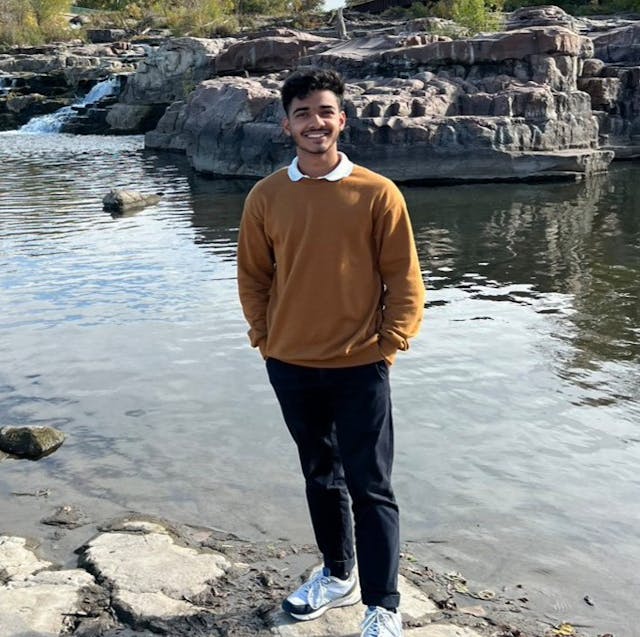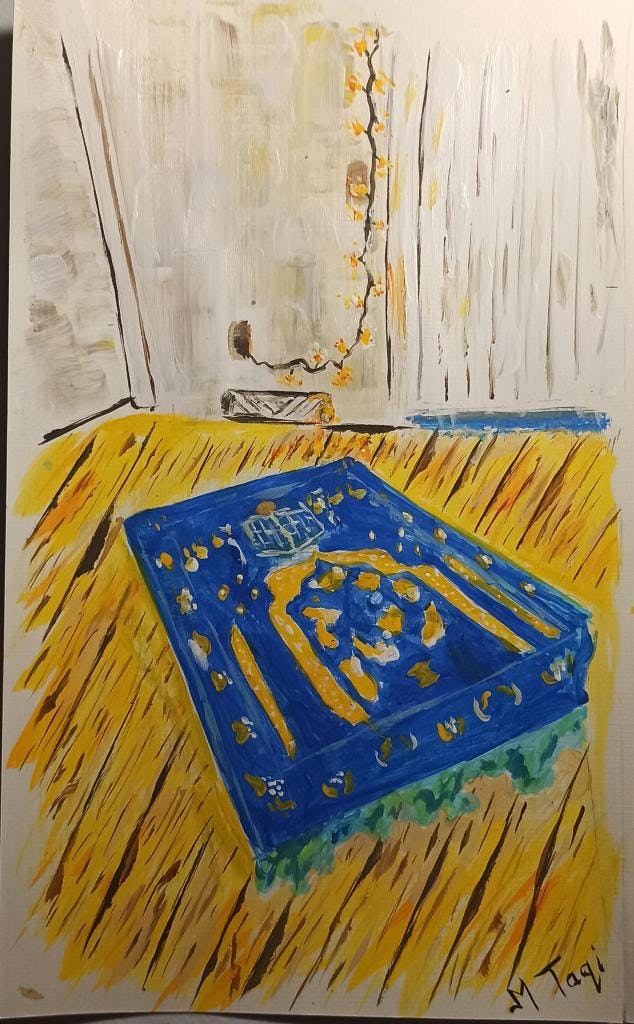Winners

Murtuza Sarwar Taqi
Murtuza Sarwar Taqi is an international student, originally from Lucknow, India. He is majoring in Physics and will start his Masters in Medical Physics at University of Rhode Island, Kingston this coming Fall. Murtuza’s artwork is focused on abstract expressionist paintings to make people feel a certain way. He considers himself a very amateur artist who is trying different styles.
An Isolated Sanctuary
I think the word ‘fauve’ (wild beast) will not be appropriate for a sanctuary but that is the style in which I have depicted my sanctuary. As an international Shi'a student from India, there is hardly a place I could call a sanctuary in my college town. Kirksville is a small town by any standard in Northeast Missouri. This means there is barely any Muslim presence in the area. This is a sheer contrast to my hometown of Lucknow which is a bastion of Shi'ism in North India and an epicenter for ‘Azadari’.
In Kirksville, I found my sanctuary on the prayer mat of my room, especially during late nights. For me, spiritual clarity comes from being able to pray during the night which is calming and lends me closeness to Allah. This was a place that provided me peace, a connection to Allah, and an escape from life. The painting accompanying this essay gives a strong visual effect to what I mean as ‘sanctuary’. This painting is done in Fauvist style with hints of Neo-Impressionism. This prayer mat also shows the traditional Islamic prayer mat and the clay tablet depicts the 'Shi'a belief of the owner.
I feel there are very few resources available for English-speaking Shi’a students in North America. This communication barrier often gets in the way of creating communal sanctuaries. This arises from the fact that a lot of programs and messages are not presented in a relevant and appealing way to the young generation that is growing and developing in North America. This leads to a lack of spiritual clarity. It is this clarity that I seek refuge in when I am praying especially during the months of Ramadan, Muharram, and Safar.
I believe that life in a country like the US and the lack of exposure to religious and community activities makes it harder to achieve this sanctuary. This is especially true for small towns and less Shi'a-dominated cities. Even with a Muslim presence in colleges for students, the generations-old prejudice against Shi'as acts as a barrier to seeking a community in these spaces. An example of a program like Marifa is a great opportunity for young students in North America that crave this spiritual clarity I mentioned above. I think there should be more programs like these and given the vastness of the continent, more online programs will also lead to these safe havens for students that are unable to seek a sanctuary due to their geographical limits. These frequent hybrid programs will solve this issue to some extent. They will show students ways that they can find their own sanctuaries.
The systems and idols we are seeking sanctuary from are a very unique personal experience for each individual. Someone seeks sanctuary from the lifestyle of a young college student which involves excessive drinking and partying. For some, a sanctuary is a place or a state to practice their beliefs while for others it is a sanctuary to get close to Allah. Someone might be seeking a sanctuary from their life problems or to simply just escape reality and seek help from God. Whatever the reasons are, I believe having a sanctuary is necessary and essential to an individual’s spiritual and mental well-being.

Murtuza Taqi, The Sanctuary, Acrylic on Paper, 11’’ *6’’, 2023.